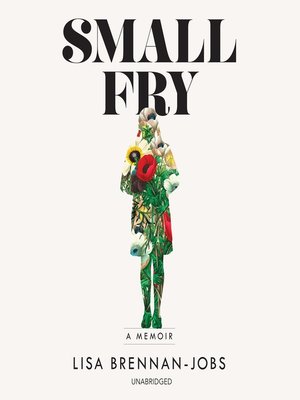A Memoir, by Lisa Brennan-Jobs, 2018

Memoir by the first-born daughter of Steve Jobs. He never married her mother. and he denied he was Lisa’s father even after a DNA test proved she was. What a mean, stingy man. How painful her childhood was, trying to earn her father’s love. He would not give her and her mother any kind of love and support and they lived so poorly while he was rich beyond belief. He would finally help them a little but only after forced to and when it was too late and the damage was done. He ate no dairy and nothing but carrots and orange juice and olive oil for most of his adult life, but he got cancer. He apologized to Lisa on his death bed, but still never told her he loved her. Lisa is an excellent writer – very engrossing read and takes you inside the lives of the rich and famous in Palo Alto. Sad lives.
Here are some excerpts from the book: “My request seemed to annoy, rather than charm him. I hoped this might change over time. He was not the father I’d imagined from the skeleton of facts I’d known. Yes, there was an elevator and a piano and an organ, he was rich and famous and handsome, but none of this satisfied completely; it was tempered by an unmistakable emptiness I felt near him, a feeling of a vast loneliness–the stair behind the kitchen with no light, the wind coming through from the rickety balcony. It was supposed to be what I wanted, but it was not possible to enjoy as I’d hoped, as if it were a sumptuous feast frozen solid.”
“My mother felt color acutely; it was one of the ways we communicated, her driving around the town, pointing out colors. She’d broken up with Ron, and although I was initially relieved to be rid of him and have my mother to myself again, now I wasn’t so sure. I’d found him annoying, but once he was gone I missed him. Ron had been variety, someone else besides my mother and me. When he walked into our house, he disturbed the air. Men brought life. You couldn’t take the measure of it until they were gone and left everything flat, without zest or surprise. We couldn’t afford to go out for dinner or to the museum in San Francisco.”
“‘You’re not getting anything,” he said. “You understand? Nothing. You’re getting nothing.” Did he mean about the car, something else, bigger? I didn’t know. His voice hurt–sharp, in my chest.”
…”‘Hey, you know that computer, the Lisa?”
“Yeah?” he said.
“Was it named after me?” I asked. We were both facing forward. I didn’t look at him; I tried to sound curious, nothing more.
If he would just give me this one thing.
“Nope.” His voice was clipped, dismissive. Like I was fishing for a compliment. “Sorry, kid.”
“I thought it was,” I said. I was glad he couldn’t see my face.”
…”I’m cold,” I said to my father in the kitchen in the morning. “Would you get the heater fixed?”
He pulled an apple juice from the fridge. “Nope. Not until we renovate the kitchen,” he said, “and we’re not going to do that anytime soon.”
I asked once if he gave to charity, and he snapped at me, saying it was “none of my business.” Laurene had bought a velvet dress for her niece on his credit card, and he gave her a hard time, reading the bill aloud in the kitchen. I assumed his frugality was part of the reason we didn’t have much furniture, and that the reason he wouldn’t hire more help to take care of my brother or clean the house was that he was tight, although this may not have been true. He made calculations out loud about what things cost, at the grocery store, and at restaurants and the Gap, and what a normal family could afford, and was indignant when things were too expensive and refused to buy them, when I wished he’d just accept that he wasn’t normal and splurge. I’d also heard of his generosity, how he’d bought an Alfa Romeo for Tina, and a BMW for Laurene, and paid off her school loans. I thought he was mostly frugal with me, refusing to get me more jeans, or furniture, or heat, and generous with everyone else. It was hard to understand why someone who had enough money would create a sense of scarcity, why he wouldn’t lavish us with it.”
…”I’m so lonely,” I told Mona on the phone. “He doesn’t come to say goodnight.”
One time on a vacation in Hawaii, he ordered a carrot salad. “I’d like it shredded into pieces this size”-he held his fingers an inch apart-“with half a lemon on the side. Can I also have a large glass of orange juice, fresh squeezed? Not those little glasses. The big one.” He gestured the shape of the glass, the top and bottom. He lisped when he enunciated carefully.’ The waitress brought his carrot salad, and it wasn’t what he wanted and he ended up reducing her to tears and humiliating her.
He yelled, “Stop, just stop” when the family photographer was taking pictures of just Lisa during a break.
When he was on his death bed, he told her in tears, “I’m so sorry, Lis,…I wish I could go back. I wish I could change it. But it’s too late. What can I do now? It’s just too late…I owe you one.”
Rich people can be so mean, stingy, greedy. What misery to be stuck in life with one.